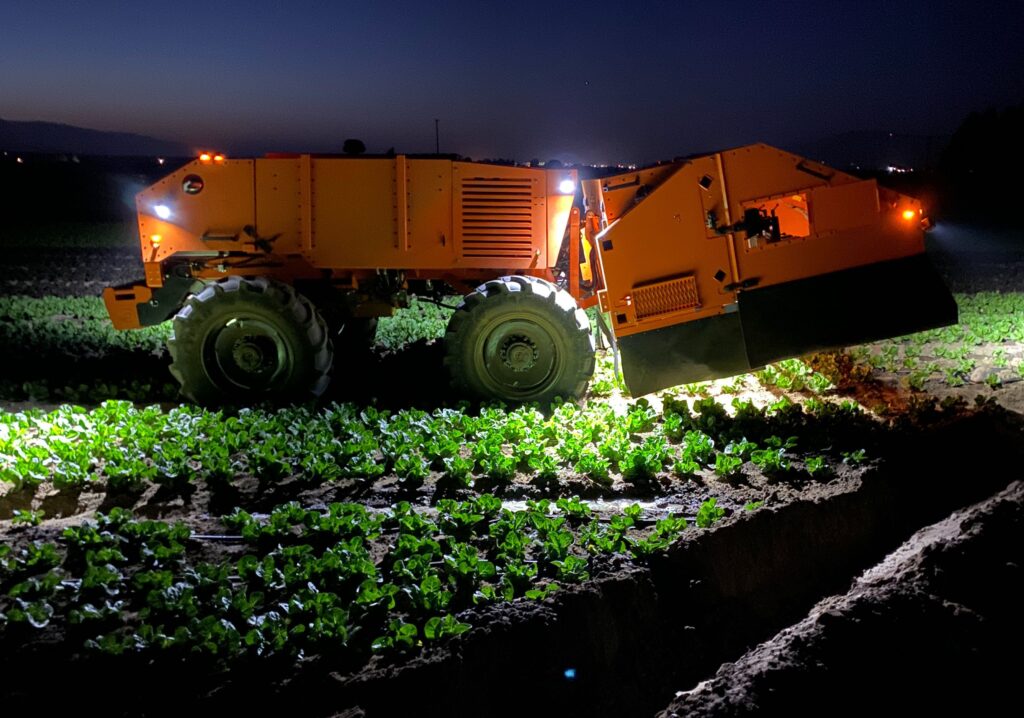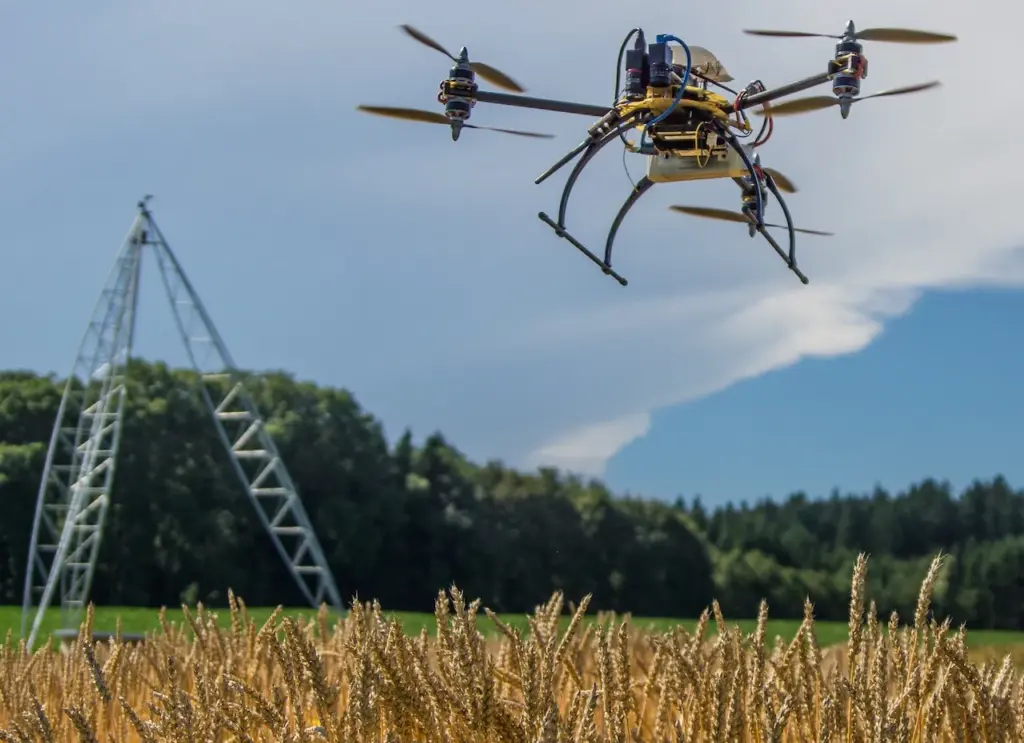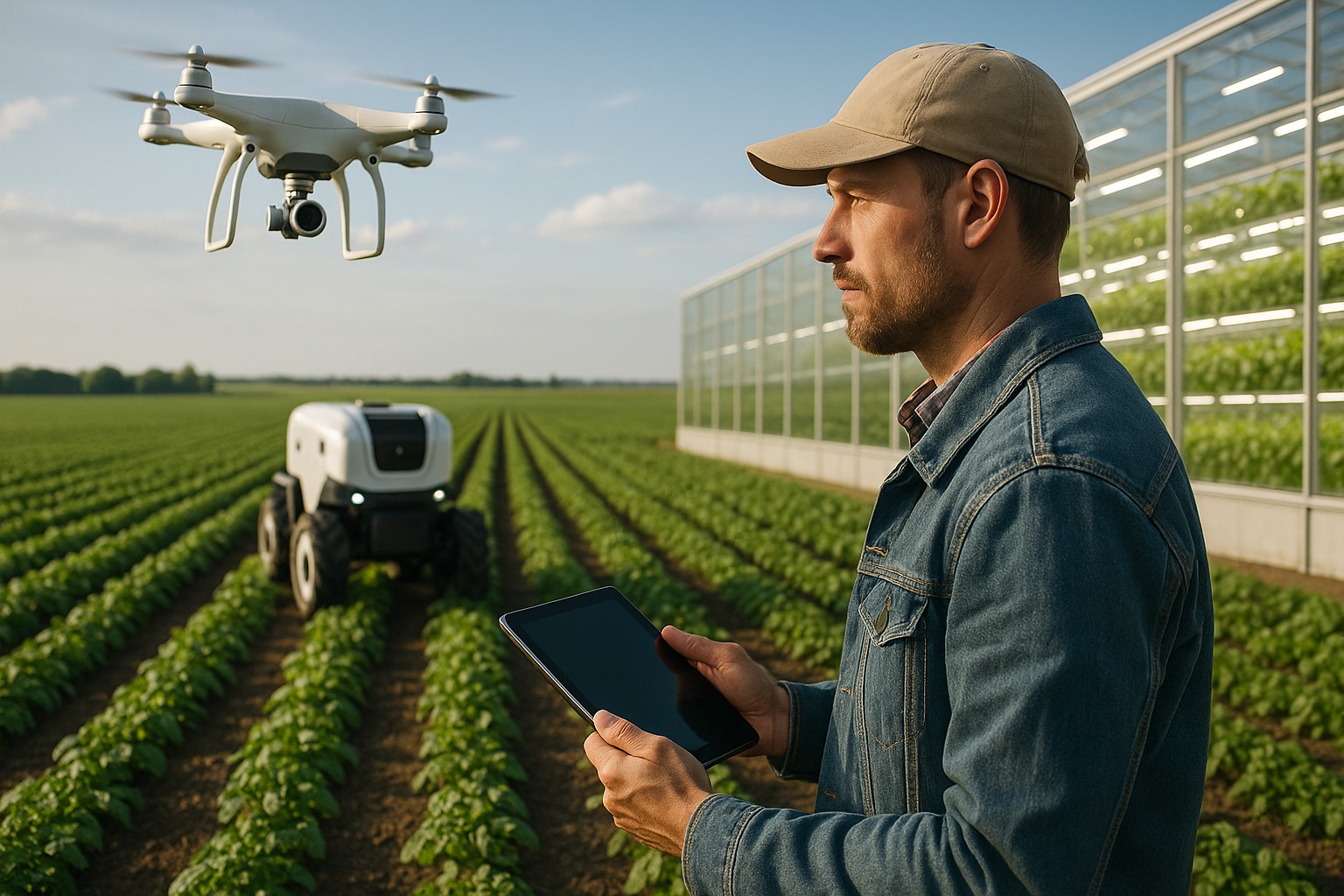The future of farming is unfolding faster than ever. From AI-powered weeders to vertical farms producing food in cities, agritech startups are reimagining how we grow and supply food. With the global population projected to reach 9.7 billion by 2050, agriculture faces the urgent challenge of feeding more people while using fewer resources. Here are five startups leading the charge.
1. FarmWise – The End of Chemical Weed Control?
California-based FarmWise is tackling one of the farming industry’s biggest challenges: weed control. Their autonomous robot, the Titan FT-35, uses AI, computer vision, and mechanical precision to remove weeds without chemicals.
Instead of buying expensive machines, farmers can pay per acre for the service. This business model reduces costs, while also limiting the use of herbicides linked to soil degradation and water pollution. FarmWise is proving that chemical-free, sustainable weed management is possible at scale.

2. Gamaya – Drones That See What Farmers Can’t
Swiss startup Gamaya is pioneering drone-based crop monitoring with hyperspectral imaging—a technology that captures dozens of light wavelengths invisible to the human eye.
These images help farmers spot plant diseases, nutrient deficiencies, and invasive weeds weeks before they become visible. This early detection allows for targeted interventions rather than broad, wasteful treatments. By turning farms into data-driven systems, Gamaya is helping boost yields, reduce fertilizer use, and support precision agriculture on a large scale.

3. Stacked Farm – Vertical Farming at Scale
Australian startup Stacked Farm is proving that vertical farming can move from boutique to industrial scale. Their automated facility covers 6,588 m², producing over 400 tonnes of leafy greens annually while using 95% less water than conventional farming.
Every step, from seeding to harvesting, is controlled by robotics and monitored in a pesticide-free environment. By reducing food miles and growing crops near urban centers, Stacked Farm lowers emissions while delivering fresher food to consumers. This model could reshape food supply chains in water-scarce and densely populated regions.
4. Muddy Machines – Robots in the Fields
In the UK, Muddy Machines is addressing farm labor shortages with autonomous robots. Their asparagus-harvesting robot, Sprout, uses AI and GPS to identify and carefully harvest crops, while another machine, Squirrel, transports produce around fields.
Labor shortages are a pressing issue—according to the UK National Farmers’ Union, thousands of tonnes of crops are lost each year due to insufficient seasonal workers. By automating these repetitive but delicate tasks, Muddy Machines is making farming more resilient, cost-effective, and future-proof.
5. Spotta – Smart Pest Control with IoT
UK-based Spotta combines IoT sensors and AI to tackle pests. Their pheromone-baited traps can detect pests like the red palm weevil up to three months earlier than traditional methods.
This means farmers can act before infestations spread, applying pesticides only where and when needed. Considering that pesticides account for $60 billion annually in global farming costs, Spotta’s solution has enormous potential to reduce expenses, protect crops, and limit environmental damage.
Why These Startups Matter
-
Sustainability – reduced pesticide, herbicide, and water use.
-
Efficiency – smarter monitoring and automation drive higher yields.
-
Resilience – technology addresses labor shortages and climate stress.
-
Farmer Empowerment – from IoT data dashboards to AI-driven decision-making, farmers gain actionable insights instead of relying on guesswork.
The Future of Farming
Imagine fields maintained by autonomous weeders, skies dotted with drone scouts, cities fed by vertical farms, and pests detected months in advance by AI sensors.
This is no longer science fiction—it’s happening now. With startups like FarmWise, Gamaya, Stacked Farm, Muddy Machines, and Spotta, the future of farming is set to be smarter, cleaner, and far more resilient.
